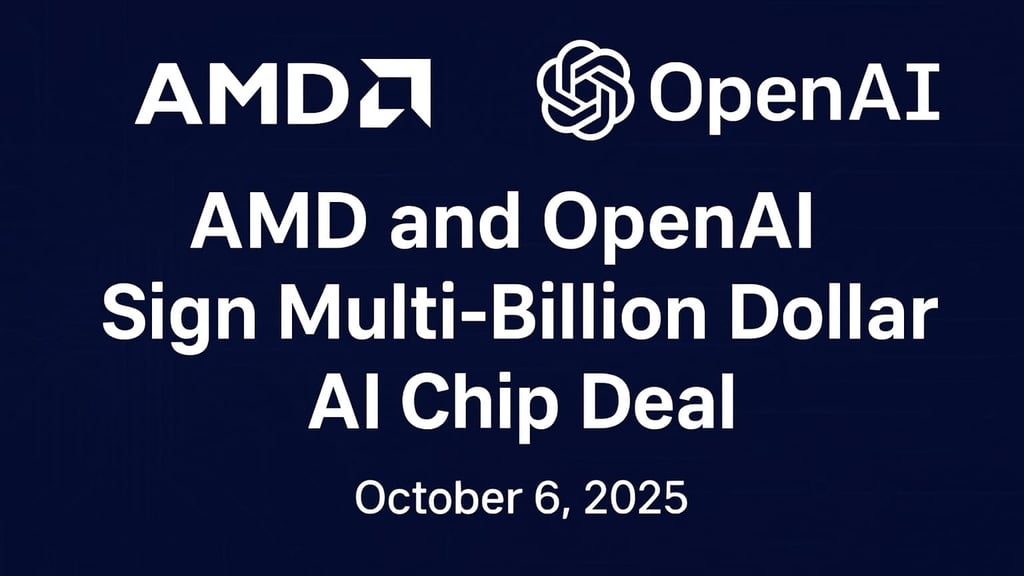AMD and OpenAI’s $10 Billion AI Chip Deal Marks a New Era in Artificial Intelligence
AMD and OpenAI sign a multi-billion dollar AI chip deal, giving OpenAI a 10% stake option and reshaping the global artificial intelligence market.
Raja Awais Ali
10/6/20252 min read


AMD and OpenAI Sign Multi-Billion Dollar Deal — A New Era in Artificial Intelligence
On October 6, 2025, the global tech industry witnessed a major breakthrough as AMD, one of America’s leading chip manufacturers, signed a multi-year, multi-billion-dollar agreement with OpenAI, the world-renowned artificial intelligence company. This partnership marks a significant step forward in the race to dominate the global AI hardware market, with both companies aiming to reshape the future of computing power.
According to the deal, AMD will supply OpenAI with its most advanced AI chips — a new generation of high-performance GPUs designed to boost machine learning and data processing. The total computing power of these chips is estimated at 6 gigawatts, and deliveries are set to begin in the second half of 2026. This move is aimed at enhancing the efficiency, scalability, and training speed of OpenAI’s large AI models.
A key highlight of this agreement is that OpenAI has been granted an option to acquire up to 10% of AMD’s shares at a nominal price. This equity option symbolizes a long-term strategic partnership and aligns both companies’ goals for innovation and market expansion. If fully exercised, this option could give OpenAI a significant stake in AMD, strengthening their collaboration for years to come.
Following the announcement, AMD’s stock price surged by over 20%, reflecting investor confidence and the market’s positive response to the potential impact of this deal. Analysts believe this agreement will not only enhance AMD’s position against competitors like NVIDIA but also establish it as a core player in the AI infrastructure market.
For OpenAI, the partnership provides a strategic advantage by diversifying its chip supply. Instead of relying solely on a single chip manufacturer, OpenAI will now have a broader supply base — an important move as AI workloads continue to grow exponentially. This will enable the company to expand its data centers and train future AI models with more efficiency and reliability.
However, experts point out that deploying 6 gigawatts of computing infrastructure will require massive investment, technical expertise, and long-term planning. Achieving full operational capacity by 2026 will be a challenge that both companies need to manage carefully to meet performance and delivery milestones.
This deal marks a turning point in the global AI race, proving that success in artificial intelligence now depends as much on hardware innovation as it does on software and algorithms. With AMD and OpenAI joining forces, the balance of power in the tech world could shift significantly in the coming years.
Stay informed with the latest national and international news.
© 2025. All rights reserved.